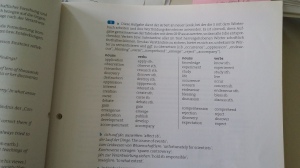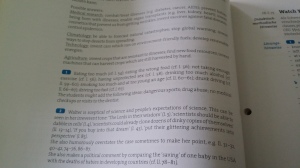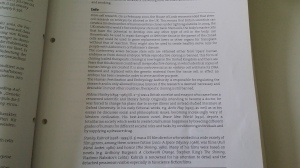Hi all,
I wanted to pass you the links to the grammar sheets:
you can find them here
and
See you again next week!
———
Sorry, I forgot to post our class of Oct 5:
Homework: p. 96 / 1c, d, 2, prep. 3 (adapted)
Please don’t forget to read newspaper articles – and finish your work on 1984!
Do the translation (p. 97, ll 7-17)
Read p. 101 and do ex. 1, 2, 3, 4.
- 97 “Down and Out – and Up?”
poverty = the state of being poor; poor = having little money; not having enough money for basic needs.
Further information: ACCORD (Action for Community Organisation, Rehabilitation and Development) is an NGO (non-governmental organization) working with tribal people in Gudalur, Tamil Nadu, southern India. Founded in 1986 by MM Thekaera and her husband Stan Thekaera, it has been involved with Adivasi land rights issues and runs schools and hospitals as well as subsidizing tea plantations.
PovertyNet (www.worldbank.org/poverty) is a World Bank website providing information about poverty, its measurement, its impacts and initiatives to reduce poverty.
https://www.youtube.com/watch?v=KRHztkJJX4A Blue Collar, Pink Collar, and White Collar Jobs
- 98 / 1a) Before T. visits Glasgow, she thinks it is absurd that people with all the facilities available to the inhabitants of a Glasgow housing estate should be considered as living in poverty. In India, such amenities would be considered luxuries.
1b) Once in Glasgow, she realizes that poverty has more than just a material dimension; the unemployed of Easterhouse are psychologically scarred b their experience, and on the emotional, if not on the material, level, the unemployed in Glasgow are worse off. Both are socially deprived, but in different ways.
vicious circle = Teufelskreis
HOMEWORK: Translate ll. 7 – 17 into German:
We were told that Easterhouse housing estate in Glasgow is considered Europe’s worst slum. We thought this was ludicrous. These people had assured housing, electricity, hot and cold water, refrigerators, gas or electric cooking ranges. By Indian standards this was middle-class luxury. At the back of my mind, I could see anaemic, emaciated adivasi women carrying water in pots from half-a-kilometre away. Huts without electricity. Women searching for firewood every evening. But then, suddenly, it hit us. Most of the men in Easterhouse hadn’t had a job in 20 years. They were dipirited, depressed, often alcoholic. Their self-esteem had gone. Emotionally and mentally they were far worse off than the poor where we lived, even though the physical trappings of poverty were less stark.
- 99 / 1) The expenditure on cigarettes (which Erica comments on and tries to excuse) and on tokens for gas and electricity (obviously the residents are not trusted to pay bills, but have to pay immediately for what they use) take up the largest part of her budget. The family’s diet is obiously more filling than it is healthy. The stress is on carbohydrates; there is no fresh fruit or vegetables and no meat or any other protein but from beans. Expenditure on transport, hygiene and entertainment seems to be a big problem.
2) Erica as a mother obiously feels upset that she cannot afford to pay for her kids’ school trips and even has difficulty feeding them. She resents judgemental comments by others about her need for cigarettes. The family seems to spend a lot of time watching TV, maybe in order to escape from their bleak reality or because other activities are simply unaffordable. Ivor does not bother to get up and do anything at all, which is a clear indication that he is suffering from depression.
Please watch your pronunciation: calm, psychological, to borrow, debt,
Please hand in the translation until the end of October, that is to say, until Oct 26, if you hand it in on paper, or a few days later if you are going to send it by e-mail!



